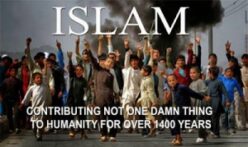Shriver and like-minded policymakers designed programs far more ambitious than those of the New Deal liberalism that had characterized the Democratic Party since Franklin Delano Roosevelt’s election in 1932. Though the New Deal vastly expanded the government safety net, it still recognized a connection between work and upward mobility and viewed government’s role as that of a temporary helper when someone was truly down and out. The officials behind the War on Poverty, by contrast, saw the poor as powerless, crushed by economic and cultural forces that could be overcome only with massive government help. Instead of temporary aid, welfare would now be a right, which the poor were entitled to receive, and benefits became far more generous, so that, by the late 1970s, welfare payments and other government aid now brought in about as much money as low-wage work.
Read the whole thing.
Source: The Cost of Bad Intentions

